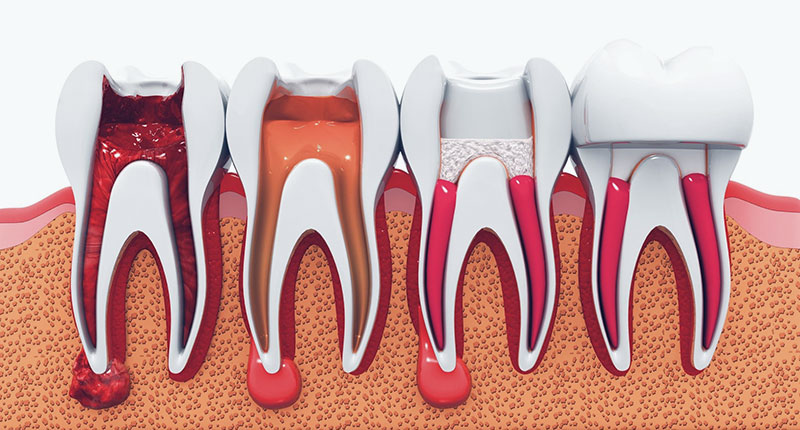
Endodontology
Spreading of bacteria into the interior of the tooth leads to an inflammation of the dental pulp (nerve), which often results in strong toothache. Sometimes the nerve dies slowly and painless, due to a slowly developing infection. The bacteria spread through root canal to the bone and cause there an inflammation (abscess or granuloma). This condition requires an endodontic therapy, which prevents the infection from spreading into the bone. Thus, the tooth and root are protected. The treatment is completely painless and we tend to make the treatment duration as short as possible.
The modern treatment of the root canal is a kind of microsurgical procedure and requires a sterile working environment. The infected tissue is removed by sterile hand instruments or mechanical aids. The infected root canals are rinsed with disinfection liquids, dried and filled with bioinert material.
(We are equipped with most modern materials and instrumentation for endodontic treatments)
At the next dentist visit a composite filling or post and core for a crown is done on the treated tooth, depending on the damage of the tooth crown.
Small pain and tooth sensitivity in the duration of two weeks till one month are a normal reaction after an endodontic treatment. In that period possibly remaining microorganisms are killed by the immune system of the body.
An endodontically treated tooth usually last as long as a “living” one, but is more fragile and breaks easier under pressure. In some cases an endodontic treatment can not be carried out successfully because the canals are very distorted and thin, previously poorly done endodontic treatments and the like. Some of these cases are successfully solved with an endodontic retreatment (repeated cleaning and disinfection of the canals) or apicectomy (surgical removal of the root tip).


